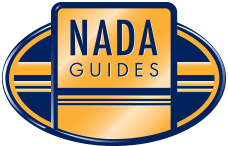
For many adventure enthusiasts, owning a motorhome or caravan symbolizes freedom and the chance to explore the open road at one’s leisure. However, financing such an investment can often pose challenges. As we delve into the innovative funding options available for acquiring your dream vehicle, insights from industry experts demonstrate that there is more than one pathway to making this dream a reality.
Understanding Financing Options
When considering financing for a motorhome or caravan, it is crucial to understand what is available. A specialist financial service like Motorhome Finance can cater to various needs, providing funding not only for motorhomes and caravans but also for static lodges and other leisure-oriented purchases. They offer online applications that take approximately three minutes to complete and perform a soft credit search that won’t impact the applicant's credit score negatively.
Pre-Approval Simplified
One of the standout features of this financing option is its ability to lock in interest rates for a limited period—typically two weeks, depending on economic conditions. This is beneficial in a fluctuating market, as prospective buyers can secure financing before committing to a purchase, giving them the confidence to approach dealers with an approved budget.
Interest Rates and Down Payment Strategies
Understanding how down payments affect interest rates is critical when deciding on financing options. Generally, the more significant the initial deposit—be it 20% or 50%—the more favorable the terms can be. Lenders often view larger loans as less risky, leading to lower interest rates for higher borrowing amounts.
For example, borrowing £60,000 on a £100,000 vehicle could yield a lower rate compared to borrowing £10,000 on a £20,000 vehicle. This differentiation in rates often stems from the underlying economics of lending, where lenders are necessitated to cover costs proportional to the amount financed.
Targeting the Right Market Segment
The motorhome and caravan financing market also encompasses business opportunities for those interested in renting out vehicles. Many newcomers are entering the rental space, and companies involved in this sector can also benefit from tailored funding solutions. Engaging with specialists who understand the dynamics of corporate finance ensures that businesses can secure appropriate funding to establish or expand their fleet.
The Value of Mixing Capital and Credit
Interestingly, even affluent individuals often turn to financing, despite their financial capacity to purchase vehicles outright. This practice is driven by the desire to maintain liquidity. By opting to finance a portion of their purchase, they conserve cash reserves for emergencies or investment opportunities. The benefits of using financing also extend to protecting buyers from potential merchantability issues, as involvement from a finance provider often includes additional assurances against defects or quality concerns.
Conclusion
Navigating the financing landscape for motorhomes and caravans can appear daunting, but there are numerous innovative options available. From securing pre-approved finance to understanding the impact of down payments and interest rates, prospective buyers can feel empowered to make informed decisions. Whether aiming to purchase a dream vehicle for personal adventures or launching a rental business, the right financial strategy can significantly enhance the opportunity for success in this rewarding lifestyle choice.
NoCredit Campers specializes in providing affordable RV and camper financing solutions for customers with all credit backgrounds. Our mission is to help everyone experience the joy of RV ownership, regardless of their credit history. With a wide selection of campers, travel trailers, and motorhomes available through flexible rent-to-own and buy-here-pay-here options, we make your camping dreams a reality. Visit us at https://nocreditcampers.com to explore our inventory and learn more about our easy financing options. Adventure awaits – let NoCredit Campers be your gateway to the great outdoors!












